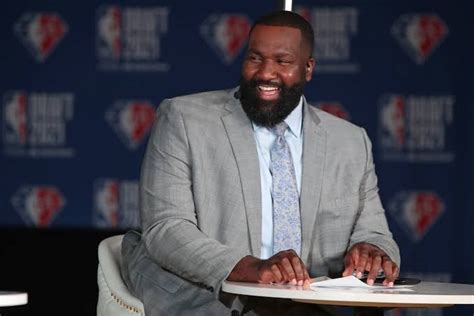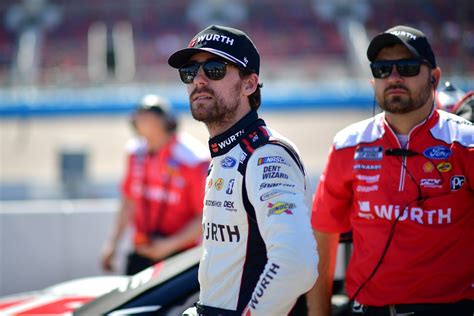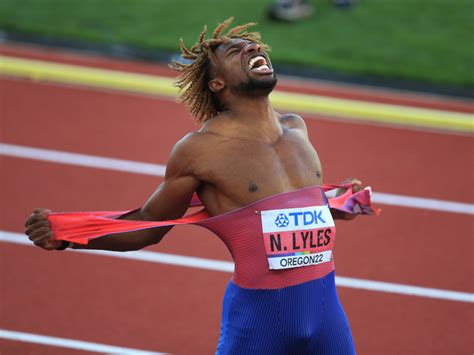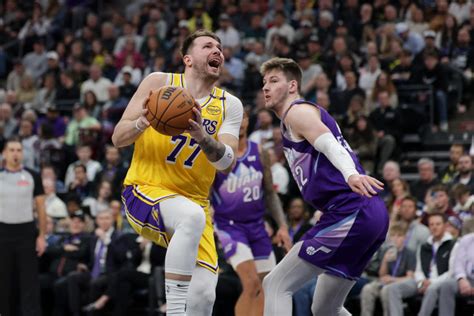
Kendrick Perkins, ESPN analyst and former NBA player, has apologized for comments made on First Take Wednesday morning regarding the race of NBA MVP voters and their potential bias against Denver Nuggets center Nikola Jokic. His remarks sparked immediate controversy, leading to widespread criticism and calls for accountability.
Perkins’ apology came after he suggested that Jokic’s MVP candidacy was being bolstered by white voters. “What do you mean what color are they?” Perkins said on Wednesday’s edition of First Take, responding to a question about MVP voters, adding, “This is something that needs to be talked about… When you look at the history of the NBA and you go back and you do your homework, you start seeing a trend.”
The comments drew swift condemnation from fellow analysts, fans, and media personalities alike. Many viewed Perkins’ statements as divisive and unfounded, arguing that they injected race into a discussion that should focus solely on basketball performance. Stephen A. Smith, Perkins’ colleague on First Take, publicly rebuked the comments, stating he didn’t “agree with what Perk said.” Smith emphasized the importance of avoiding racial generalizations and focusing on the merits of individual players.
“I want to apologize for implying that race was the determining factor in the NBA MVP vote. I understand my comments have hurt and offended people, and I am truly sorry,” Perkins stated in his apology released later on Wednesday. He acknowledged the pain his words caused and expressed a commitment to learning from the experience.
The controversy underscores the delicate nature of discussing race in sports and the potential for misinterpretations and offense. It also highlights the heightened scrutiny faced by media personalities who comment on sensitive topics on national platforms. The incident serves as a reminder of the importance of thoughtful and responsible commentary, particularly when addressing issues of race and bias.
The fallout from Perkins’ comments continued throughout the day, with social media ablaze with reactions and debates. Many questioned the basis for his claims and pointed to Jokic’s undeniable statistical dominance and impact on the Nuggets as the primary reasons for his MVP consideration. Jokic has won the MVP award in the previous two seasons and is a leading candidate to win it again this year.
The incident raises broader questions about the role of race in sports media and the responsibilities of commentators to engage in nuanced and informed discussions. While race is undoubtedly a factor in society, and therefore can influence perspectives, analysts are expected to provide evidence-based analysis rather than relying on generalizations or stereotypes.
ESPN has not yet released an official statement regarding the incident or whether Perkins will face any disciplinary action. However, the network has a history of addressing controversial comments made by its personalities. The situation remains fluid, and it is likely that further developments will unfold in the coming days. This incident serves as a significant moment in the ongoing dialogue about race, sports, and media responsibility.
The comments from Perkins sparked a widespread reaction, with many criticizing the injection of race into the NBA MVP discussion, which is traditionally centered on basketball performance and statistics. While discussions of race in sports are not inherently inappropriate, Perkins’ approach was seen by many as overly simplistic and potentially harmful. Critics argued that his comments risked undermining the achievements of individual players and perpetuating negative stereotypes.
The incident also brings attention to the pressure faced by media personalities to generate compelling content and engage viewers. In the competitive landscape of sports media, there is often an incentive to make bold and controversial statements to attract attention. However, this can sometimes lead to irresponsible commentary that lacks nuance and sensitivity.
The reaction to Perkins’ remarks also highlighted the growing importance of social media as a platform for holding media personalities accountable. The swift and widespread condemnation of his comments on Twitter and other platforms demonstrated the power of public opinion to shape the narrative and influence the response of media organizations.
In the aftermath of the controversy, there is likely to be increased scrutiny of the comments made by sports analysts and a greater emphasis on responsible and nuanced discussions of race and other sensitive topics. The incident serves as a cautionary tale for media personalities who must navigate the complexities of race, sports, and media in an increasingly polarized society.
Further complicating the matter, Perkins’ comments were made in the context of a larger debate about the fairness and objectivity of the NBA MVP voting process. Some observers have argued that the voting process is susceptible to biases, whether conscious or unconscious, that can influence the outcome. However, these arguments typically focus on factors such as player popularity, team success, and media narratives, rather than race.
Perkins’ decision to focus on the race of MVP voters shifted the focus of the debate in a controversial direction. While it is undeniable that race can influence individual perspectives, many felt that his comments lacked sufficient evidence and risked unfairly questioning the integrity of the voting process. The incident also highlighted the challenges of discussing complex issues like bias and discrimination in a public forum, where comments can easily be misinterpreted or taken out of context.
Looking ahead, it is likely that ESPN will take steps to address the controversy and ensure that its commentators are aware of the potential impact of their words. The network may also consider implementing additional training or guidelines on how to discuss sensitive topics in a responsible and nuanced manner. The incident also serves as a reminder of the importance of critical thinking and media literacy, as viewers are encouraged to evaluate the comments of sports analysts and other media personalities with a discerning eye.
The controversy surrounding Perkins’ comments comes at a time when discussions of race and social justice are increasingly prevalent in the sports world. Athletes, teams, and leagues have become more vocal in their support for social causes and their opposition to discrimination. However, these efforts have also been met with resistance from some quarters, who argue that sports should remain separate from politics and social issues.
The incident highlights the challenges of navigating these complex and often conflicting perspectives. While it is important to address issues of race and inequality in sports, it is also crucial to do so in a way that is respectful, informed, and avoids perpetuating harmful stereotypes. The Perkins controversy serves as a reminder of the importance of engaging in thoughtful and nuanced discussions, even when addressing sensitive topics.
The impact of Perkins’ comments extends beyond the immediate controversy. The incident could potentially damage his credibility as an analyst and affect his future career prospects. It also raises questions about the role of ESPN in shaping the narrative around sports and its responsibility to ensure that its commentators are held accountable for their words. The network faces the challenge of balancing its commitment to free speech with its responsibility to promote responsible and inclusive commentary.
The incident also serves as a reminder of the power of words and the potential for even well-intentioned comments to cause harm. In an era of social media and instant communication, it is more important than ever for media personalities to be mindful of the impact of their words and to avoid making generalizations or stereotypes that could offend or alienate viewers.
In conclusion, the controversy surrounding Kendrick Perkins’ comments on ESPN’s First Take highlights the complexities of discussing race in sports media. While Perkins has apologized for his remarks, the incident underscores the importance of responsible and nuanced commentary, the potential for misinterpretations and offense, and the heightened scrutiny faced by media personalities who comment on sensitive topics on national platforms. The fallout from the controversy is likely to continue in the coming days and will likely prompt further discussions about race, sports, and media responsibility. The incident serves as a significant moment in the ongoing dialogue about race, sports, and media responsibility, emphasizing the need for thoughtful and informed discussions.
The incident with Kendrick Perkins is not an isolated event. It is part of a larger conversation about race and representation in sports media. For years, there have been criticisms regarding the lack of diversity in sports broadcasting and the types of narratives that are often promoted. The Perkins controversy has reignited this debate, prompting many to call for greater representation and more nuanced discussions of race and other sensitive topics.
One of the key issues at stake is the potential for unconscious bias to influence commentary and analysis. Studies have shown that unconscious biases can affect how people perceive and interpret information, and this can have significant implications for sports media. For example, commentators may unconsciously favor certain athletes or teams over others, or they may perpetuate stereotypes about different racial or ethnic groups.
To address this issue, many organizations are implementing diversity and inclusion training programs for their employees. These programs are designed to raise awareness of unconscious biases and to provide tools for mitigating their impact. However, critics argue that these programs are often insufficient and that more systemic changes are needed to address the underlying issues of inequality and discrimination.
Another important aspect of the debate is the role of media organizations in shaping public opinion. Sports media has a significant influence on how people perceive athletes, teams, and the sports world in general. As a result, media organizations have a responsibility to ensure that their coverage is fair, accurate, and inclusive. This includes providing opportunities for diverse voices to be heard and challenging stereotypes and biases whenever they arise.
The Perkins controversy has also raised questions about the standards of accountability for sports commentators. While commentators are expected to provide informed analysis and commentary, they are also given a certain amount of freedom to express their opinions. However, when those opinions are seen as offensive or harmful, there is often a debate about whether and how they should be held accountable.
In some cases, commentators have been suspended or fired for making controversial remarks. In other cases, they have been asked to issue apologies or undergo sensitivity training. The appropriate response often depends on the specific circumstances of the case, including the nature of the remarks, the context in which they were made, and the commentator’s track record.
The Perkins controversy serves as a reminder of the challenges and responsibilities that come with being a sports commentator. In an era of social media and instant communication, commentators must be mindful of the impact of their words and avoid making generalizations or stereotypes that could offend or alienate viewers. They must also be willing to engage in thoughtful and nuanced discussions of race and other sensitive topics, even when those discussions are difficult or uncomfortable.
The long-term impact of the Perkins controversy remains to be seen. However, it is clear that the incident has sparked a renewed debate about race and representation in sports media. It is also likely to lead to increased scrutiny of the comments made by sports analysts and a greater emphasis on responsible and nuanced discussions of race and other sensitive topics. Whether these changes will lead to meaningful improvements in the sports media landscape remains to be seen.
Furthermore, the incident has implications beyond the realm of sports media. It highlights the broader challenges of discussing race and other sensitive topics in a polarized society. In an environment where people are increasingly divided along racial, political, and ideological lines, it can be difficult to engage in constructive dialogue.
The Perkins controversy serves as a reminder of the importance of empathy, respect, and critical thinking when discussing race and other sensitive topics. It also highlights the need for people to be willing to listen to different perspectives and to challenge their own biases and assumptions. While it is unlikely that the Perkins controversy will resolve all of these issues, it can serve as a catalyst for further dialogue and progress. The incident provides an opportunity for reflection and growth, both for individuals and for the sports media industry as a whole.
The controversy surrounding Perkins’ comments also touches upon the issue of accountability in media. In an era of rapid news cycles and instant reactions, it is crucial that media personalities are held responsible for the content they produce. This accountability extends not only to factual accuracy but also to the potential impact of their words on audiences. The swift backlash against Perkins’ comments demonstrates the increasing expectation that media figures will be mindful of the potential for their words to perpetuate harmful stereotypes or incite division.
This incident has prompted discussions about the role of media organizations in fostering responsible dialogue and promoting inclusivity. Some argue that media companies have a responsibility to actively address issues of diversity and representation within their own ranks and to ensure that their commentators are equipped to engage in nuanced conversations about race and other sensitive topics. Others contend that media organizations should prioritize freedom of speech and allow commentators to express their opinions without fear of censorship or reprisal.
Ultimately, finding a balance between these competing values is a complex challenge. However, the Perkins controversy underscores the importance of media organizations taking a proactive approach to promoting responsible dialogue and fostering a more inclusive environment. This may involve implementing diversity training programs, establishing clear guidelines for commentary, and fostering a culture of open communication and accountability.
The incident also raises questions about the standards of evidence that should be applied when making claims about bias or discrimination. In Perkins’ case, many critics argued that his comments lacked sufficient evidence to support his assertion that the race of MVP voters was influencing their decisions. This highlights the importance of relying on credible data and rigorous analysis when discussing sensitive topics like race and bias.
While anecdotal evidence and personal experiences can be valuable sources of information, they should not be used as the sole basis for making sweeping generalizations or accusations. Instead, commentators should strive to ground their analysis in empirical data and established research. This will help to ensure that their comments are informed, accurate, and less likely to perpetuate harmful stereotypes.
The Perkins controversy has also prompted discussions about the role of context in interpreting media commentary. Some argued that Perkins’ comments should be understood within the context of a broader conversation about race and inequality in sports. Others contended that the context did not excuse his comments and that they were still harmful regardless of his intentions.
Ultimately, determining the appropriate weight to give to context is a subjective judgment. However, it is important to consider the potential impact of comments on audiences, regardless of the speaker’s intentions or the surrounding circumstances. This is particularly true when discussing sensitive topics like race, where even seemingly innocuous comments can have a significant impact on individuals and communities.
The incident with Kendrick Perkins serves as a potent reminder of the responsibilities that accompany a platform in the media. With reach comes the obligation to engage in thoughtful, informed, and respectful dialogue. The controversy underscores the vital importance of media literacy for consumers and the need for continuous self-reflection and improvement within the media industry.
Frequently Asked Questions (FAQ)
1. What exactly did Kendrick Perkins say that caused the controversy?
Kendrick Perkins, while discussing the NBA MVP race on ESPN’s First Take, suggested that Nikola Jokic’s MVP candidacy was potentially being boosted by white voters. He implied that the race of the voters might be a determining factor in the decision, stating, “When you look at the history of the NBA and you go back and you do your homework, you start seeing a trend.” This statement was interpreted by many as suggesting racial bias was influencing the MVP voting process.
2. What was the reaction to Perkins’ comments?
The reaction was swift and largely negative. Fellow analysts, fans, and media personalities criticized Perkins’ comments as divisive, unfounded, and injecting race unnecessarily into a discussion about basketball performance. Stephen A. Smith, his colleague on First Take, publicly disagreed with Perkins. Social media was flooded with reactions, and many questioned the basis for his claims.
3. How did Kendrick Perkins respond to the controversy?
Perkins issued an apology later the same day. In his apology, he stated, “I want to apologize for implying that race was the determining factor in the NBA MVP vote. I understand my comments have hurt and offended people, and I am truly sorry.” He acknowledged the pain his words caused and expressed a commitment to learning from the experience.
4. Has ESPN issued a statement or taken any action regarding Perkins’ comments?
As of the time of the initial news reports, ESPN had not released an official statement regarding the incident or whether Perkins would face any disciplinary action. The network has a history of addressing controversial comments made by its personalities, but the specific course of action in this case remained unclear.
5. What are the broader implications of this controversy?
The controversy highlights the complexities of discussing race in sports media and the potential for misinterpretations and offense. It underscores the importance of responsible and nuanced commentary, particularly when addressing sensitive topics. The incident also raises questions about the role of ESPN in shaping the narrative around sports and its responsibility to ensure that its commentators are held accountable for their words. The controversy is part of a larger conversation about race and representation in sports media, the need for greater diversity, and the standards of accountability for sports commentators. It also prompts discussions about unconscious bias, the role of media organizations in shaping public opinion, and the importance of critical thinking and media literacy for viewers.









